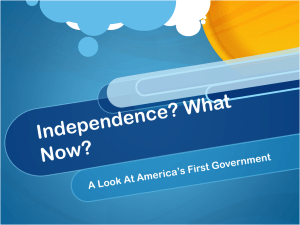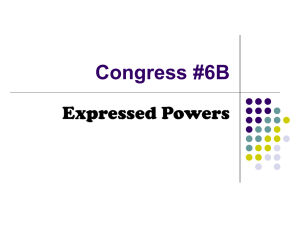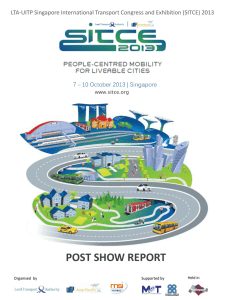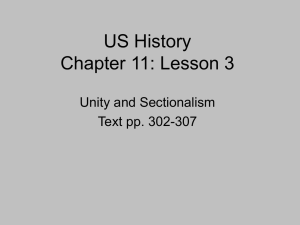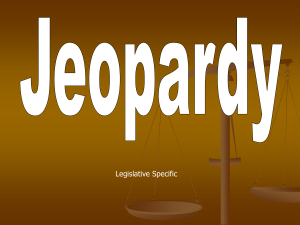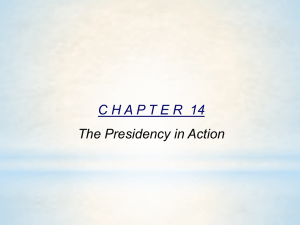10/18 Monday Powers of Congress
advertisement
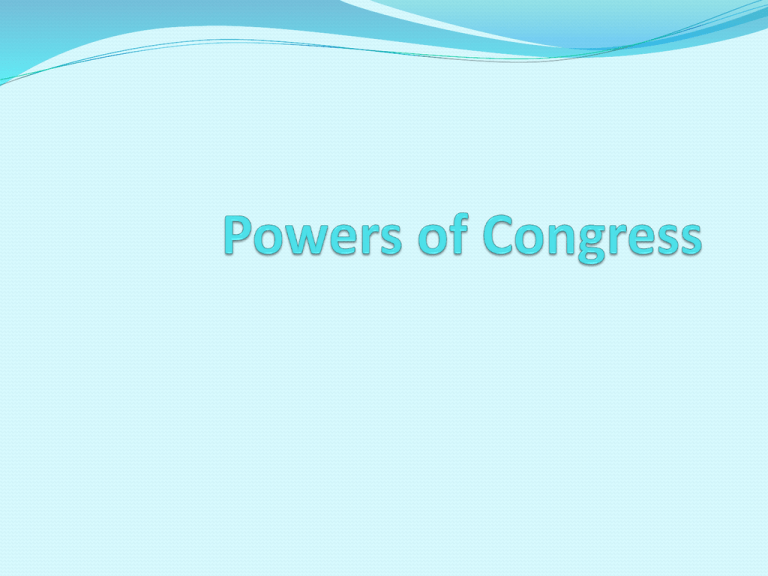
House of Reps. Vs. Senate Venn Create a Venn Diagram. The “U.S. House of Representatives” should be on one side, the “U.S. Senate” should be on the other side, and the overlapping section in the middle should be labeled “Both.” To which House of Congress does it belong? As you view each of the following slides, decide if you believe that each power or description is a power or description that only the House has, only the Senate has, or that both have. Place each topic in the appropriate section on your Venn Diagram. Use the word at the top of each slide for your Venn. Lawmakers Makes Laws 100 Has 100 members 25 years Must be at least 25 years old In-State Must live in the state they represent 2 Year Terms Serves 2 year terms in office Population Representation is based on population Treaties Approves (or denies) Treaties Franking Franking Privilege (free postage) Censure Can remove their own members due to misconduct (Censure) Succession Has the person second in line to the presidency. (i.e. President and VicePresident can’t fulfill their office) Incumbents Incumbents usually win Appointments Accepts or denies presidential appointments Bills Can introduce bills Filibuster Can perform a filibuster, meaning that a person or group of representatives can keep talking until the bill is abandoned or a majority agree to modify the most controversial parts of the bill. A person needs to simply stay on their feet and keep talking about ANY topic. They can read a book or phone book. Threats of filibuster can result in refusal to consider many bills at all. Interest Groups Consider interest groups when voting on certain issues. War Declares War Impeachments Tries impeachments Chamber President The Vice-President is President of this chamber of Congress Override Can override a presidential veto Venn Answers View the next slides to see where you should have listed the powers from the presentation. Correct your answers The U.S. House of Representatives At least 25 years old Serves 2 year terms Representation based on population Succession: has person 2nd in line to presidency (Speaker of the House) Tries impeachments Senate 100 members Approves treaties Approves or denies Appointments of the President The U.S. Vice-President is President of the Senate, but can’t vote except in the case of a tie Tries Impeachments Both Make Laws Must live in the state they represent Franking Privilege Censure Incumbents Bills Interest Groups Declares War Can Override a Presidential Veto Powers of Congress (review) Expressed Powers Taxing Borrowing Regulation of Commerce (trade) Naturalization (becoming a citizen) and Bankruptcy Laws Money and Standard Weights and Measurements Punishing Counterfeiters Establishes Roads and Post Offices Issues Patents and Copyrights Lower Courts: Tribunals inferior to the Supreme Court Punishes Pirates (yes, they still exist!) Declares War Raises and Supports Armies Creates a Navy Regulates the Armed Forces (Military Justice) Calls on the Militia, or National Guard Organizes the Militia Creation of the District of Columbia Implied Power The Elastic Clause “Necessary and Proper” Clause Powers Denied to Congress On the other side of your paper, list the following 8 powers that are denied to Congress based on the U.S. Constitution. As a class you will read through each power. Discuss the review questions as a class at the bottom of each slide I. Slavery “The Migration or Importation of such Persons as any of the States now existing shall think proper to admit, shall not be prohibited by the Congress prior to the Year one thousand eight hundred and eight, but a Tax or duty may be imposed on such Importation, not exceeding ten dollars for each person.” (Notice the term “slave” is not used, although that is who this is referring to. The slave trade, not slavery, was outlawed in 1808.) Why do you think this was an important power denied to Congress at the time the Constitution was created? II. Habeas Corpus “The privilege of the Writ of Habeas Corpus shall not be suspended, unless when in Cases of Rebellion or Invasion the public Safety may require it” A writ of habeas corpus is a court order directing a sheriff or other public officer who is detaining another person to “produce the body” of the detainee (with reasons for holding them) so the court can assess the legality of the detention. Can you think of any examples from recent history when the writ was suspended? III. Special Bills “No Bill of Attainder or Ex Post Facto Law shall be passed.” A bill of attainder is a law that inflicts punishment without a trial. An ex post facto law is a law that inflicts punishment for an act that was not illegal when it was committed. Why do you believe the Founding Fathers were concerned with the two laws listed above? IV. Direct Taxes “No Capitation, or other direct, Tax shall be laid, unless in Proportion to the Census or Enumeration herein before directed to be taken.” A capitation is a tax on a person. A direct tax is a tax paid directly to the government, such as a property tax. This clause was intended to prevent Congress from levying a tax on slaves per person and thereby taxing slavery out of existence. Why were the Founding Fathers concerned about this issue when slavery was already such an established part of society? V. Export Taxes “No Tax or Duty shall be laid on Articles exported from any State.” Congress may not tax any goods sold from one state to another or from one state to a foreign country. (Congress does have the power to tax goods that are bought from other countries, however.) Why do you think Congress was given the power to tax imports, but not exports? VI. Interstate Commerce “No Preference shall be given by any Regulation of Commerce or Revenue to the Ports of one State over those of another: nor shall Vessels bound to, or from, one State, be obliged to enter, clear, or pay Duties in another.” Congress may not treat different ports within the United States differently in terms of taxing and commerce (trade) powers. Congress may not tax goods sent from one state to another. Finally, Congress may not give one state’s ports a legal advantage over those of another state. Analyze why this was put into effect. VII. Treasury Withdrawals “No Money shall be drawn from the Treasury, but in consequence of Appropriations made by Law; and a regular Statement and Account of the Receipts and Expenditures of all public Money shall be published from time to time.” Federal funds can be spent only as Congress authorizes. This is a significant check on the President’s power. Can you think of a situation in which this would severely impact the President’s ability to perform? VIII. Titles of Nobility “No Title of Nobility shall be granted by the United States; And no Person holding any Office of Profit or Trust under them, shall, without the Consent of the Congress, accept of any present, Emolument, Office, or Title, of any kind whatever, from any King, Prince, or foreign State.” No person in the United States may be bestowed a title of nobility such as duke or duchess. This clause also discourages bribery of American officials by foreign governments. Explain why you believe the Founding Fathers addressed this issue. Division of Powers Powers are divided in the U.S. Constitution in more than one way, included between the federal government and state governments. Federalism Powers are divided between a national, or federal, government and the states. Later we will see which ones you know! Delegated, Expressed, or Enumerated Powers Those powers directly granted to the federal government by the Constitution as stated in Article I, Section 8 of the U.S. Constitution. Reserved Powers Powers that are neither granted to the federal government nor expressly forbidden to the states and are therefore retained by the states or by the people Which Powers Are Denied to States? Before we review exactly which powers the states DO have, let’s first look at the few they are specifically denied. I. Treaties and Coinage “No State shall enter into any Treaty, Alliance, or Confederation; grant Letters of Marque and Reprisal; coin Money; emit Bills of Credit; make any Thing but gold and silver Coin a Tender in payment of Debts; pass any Bill of Attainder, ex post facto Law, or Law impairing the Obligation of contracts, or grant any Title of Nobility.” Prohibiting state laws “impairing the Obligation of contracts” was intended to protect creditors. II. Duties and Imports “No State shall, without the Consent of the Congress, lay any Imports or Duties on Imports or Exports, except what may be absolutely necessary for executing its inspection Laws; and the net Produce of all Duties and Imposts, laid by any State on Imports or Exports, shall be for the Use of the Treasury of the United States; and all such Laws shall be subject to the revision and Controul of the Congress.” Only Congress can tax imports. Further, the states cannot tax exports. Why would the Founding Fathers only allow Congress to tax imports and NOT allow the states to tax exports? III. War “No State shall, without the consent of congress, lay any Duty of Tonnage, keep Troops, or Ships of War in time of Peace, enter into any Agreement or Compact with another State, or with a foreign power or engage in War, unless actually invaded, or in such imminent Danger as will not admit delay.” A duty of tonnage is a tax on ships according to their cargo. No states may effectively tax ships according to their cargo unless Congress agrees. Additionally, this clause forbids any state to keep troops or warships during peacetime or to make a compact with another state or foreign nation unless Congress agrees. States can, in contrast, maintain a militia, but its use has to be limited to internal disorders, that occur within a state- unless, of course, the militia is called into federal service. Explain why you believe this power was specifically denied to the states. Federalism Wednesday you will examine how powers are divided between the federal government and the states.




